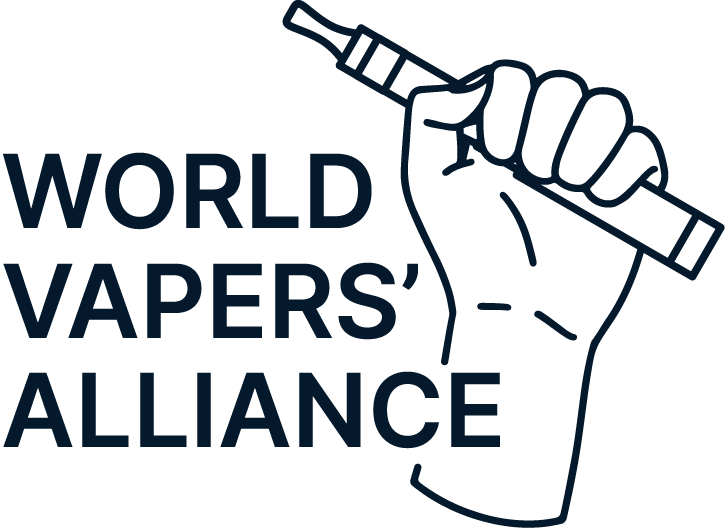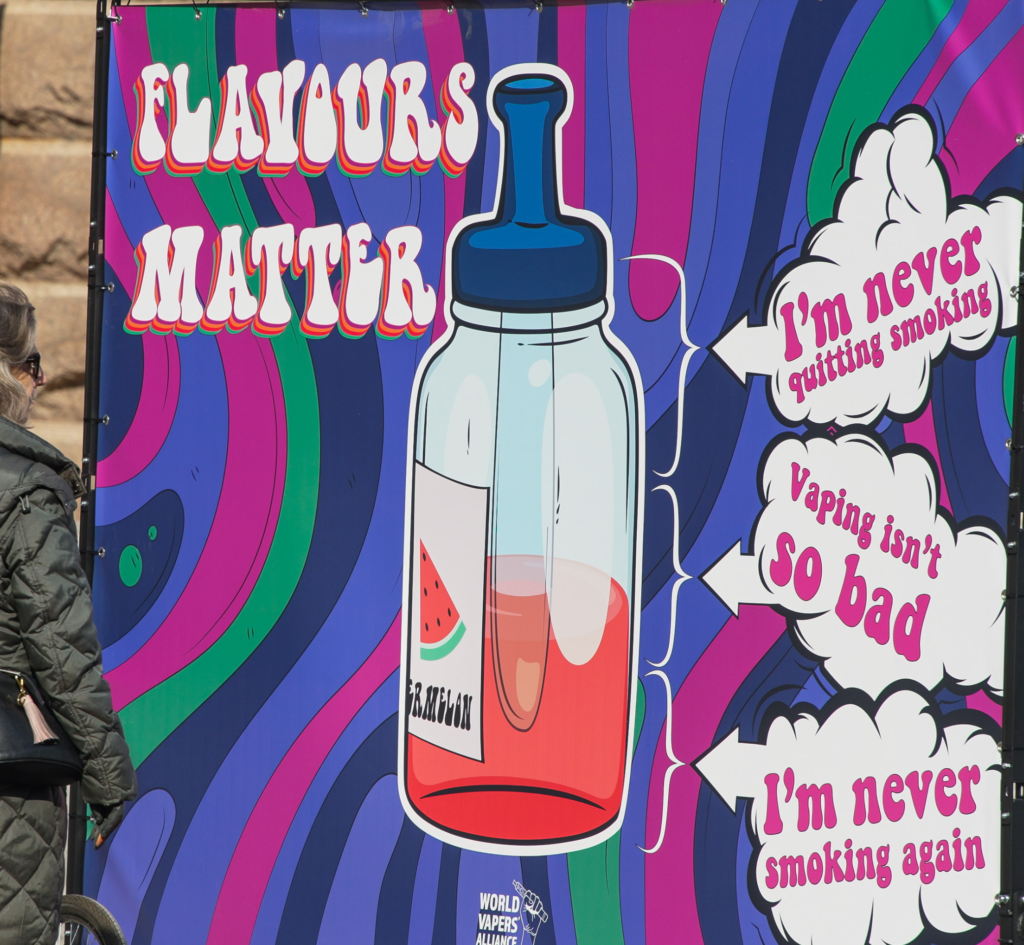Depuis des années, les consommateurs tentent de se faire entendre des politiciens, les mettant en garde contre les conséquences imprévues des interdictions des arômes pour cigarettes électroniques. Plus de les deux tiers La plupart des vapoteurs adultes utilisent des arômes autres que le tabac. Ceux qui utilisent des arômes sont 230 % plus susceptibles d'arrêter de fumer Fumer définitivement. Interdire les arômes ne laissera aux consommateurs que trois options tout aussi déplorables : retourner à la cigarette, le marché noir ou acheter leurs arômes à l’étranger. L’Université de Waterloo a constaté que 45% de vapoteurs Ils se tourneraient vers des sources illégales ou recommenceraient à fumer. Ce serait une véritable catastrophe de santé publique. Malheureusement, ceux qui tirent la sonnette d'alarme sont ignorés par les politiciens et de nombreux responsables de la santé publique.
D'après une étude de Truth Initiative sur les comportements sur les réseaux sociaux, les utilisateurs de cigarettes électroniques ont publié plus de 166 000 messages et commentaires sur Reddit au moment où la FDA américaine a restreint la vente de nombreuses cigarettes électroniques aromatisées. Truth Initiative indique que “ la plupart des publications portaient sur des produits encore disponibles ou des alternatives compatibles avec JUUL, ce qui montre à quel point les utilisateurs recherchent facilement des produits aromatisés de substitution face à des restrictions partielles sur les arômes. L'étude a révélé qu'une part importante des discussions sur Reddit consistait à rechercher des informations sur la manière de contourner ces nouvelles restrictions. Plus d'un tiers de ces publications (39%) demandaient des conseils sur des marques de substitution jetables ou rechargeables, deux types de produits non concernés par les restrictions sur les arômes. ”
Malheureusement, leurs solutions consistent en davantage d'interdictions et des réglementations encore plus sévères. Or, à y regarder de plus près, cela mènerait à la catastrophe. Truth Initiative reconnaît que la première démarche des consommateurs confrontés à des interdictions partielles est de rechercher des alternatives légales. Que se passerait-il donc si Truth Initiative obtenait gain de cause et interdisait ces alternatives ?
Il est impossible d'interdire la demande. Par conséquent, dans un second temps, les consommateurs se tourneront vers le marché noir, un marché illicite totalement déréglementé, sans aucun contrôle de qualité ni de sécurité. De plus, ils seront contraints d'interagir avec des criminels, des individus louches et des cartels, tous prêts à satisfaire cette demande.
L'Estonie a interdit les arômes en 2020, et le résultat a été que 60% de vapoteurs ont continué à utiliser Ils obtiennent leurs arômes en mélangeant des liquides ou en se les procurant sur le marché noir. Par conséquent, l'idée que les gens soient poussés vers le marché noir n'est pas une simple théorie, mais un fait avéré.
De plus, un interdiction des arômes à San Francisco Cela a entraîné une hausse du tabagisme chez les adolescents, une première depuis des décennies. Une fois de plus, la situation sanitaire est loin d'être améliorée. Il ne reste donc plus qu'une option aux vapoteurs qui ne souhaitent pas se procurer leurs produits au marché noir : recommencer à fumer.
L'organisation Truth Initiative aurait intérêt à examiner attentivement ses propres résultats de recherche et à adapter ses recommandations politiques en conséquence, mais je doute fort que cela se produise.
Pourquoi j'affirme cela ? Je vous recommande de lire ceci. excellent article par Marc Gunther :
“ Au grand dam de nombreux experts en santé publique, Truth Initiative est devenu un opposant implacable au vapotage, exagérant les dangers des cigarettes électroniques et minimisant les preuves que le vapotage a remplacé le tabagisme chez les adolescents et les adultes. ”







